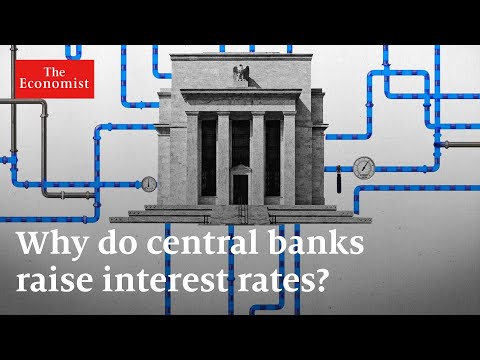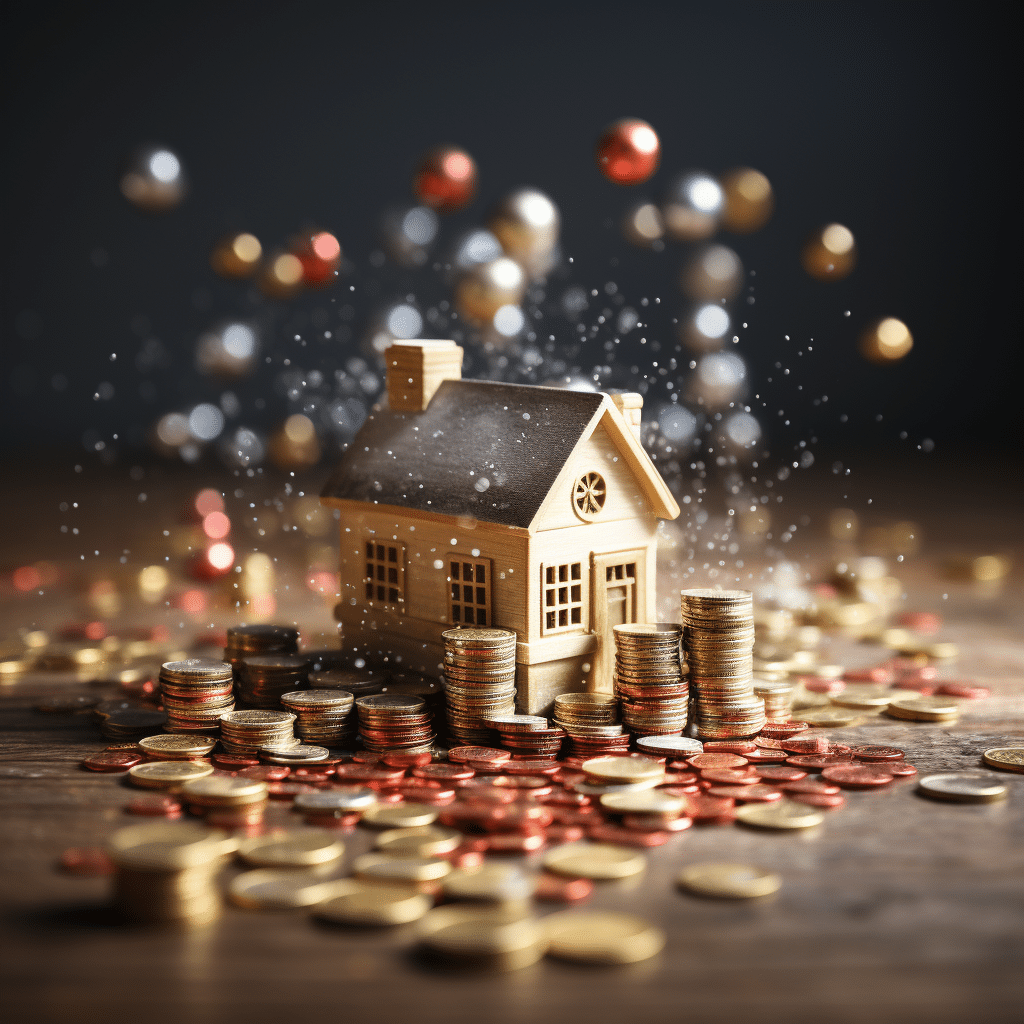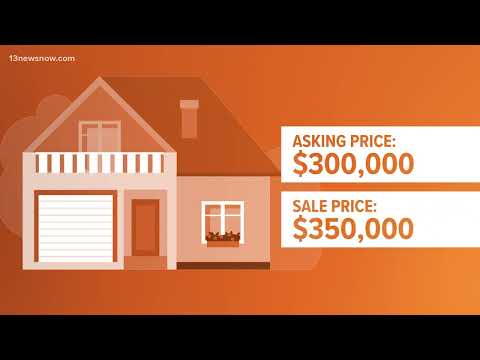Inflation is sort of like that uninvited guest at your dinner party – it just keeps taking more of your slice of the economic pie without asking! It’s a persistent hike in prices over time, shrinking the value of our hard-earned bucks. So, what’s a country to do when inflation is running as rampant as rumors during a reputation Taylor swift album release phase? That’s where our economic DJs, the central banks, mix up the beats and raise the volume on interest rates. Let’s unwind this complex dance of economics and jam through how a spike in interest rates turns down the inflation party.

Exploring the Connection: How Does Raising Interest Rates Help Inflation?
Picture this: you’re walking with cash in your pocket, ready to splurge, and suddenly everything costs an arm and a leg – that’s the drag of inflation. Central banks, like a strict parent, will sometimes boost interest rates to give that spend-happy attitude a serious time-out. By making it pricier to borrow money, they hope to cool down the economy like a bucket of ice on a sizzling day. So, how exactly does flipping the interest rate switch help hit the brakes on inflation?

1. Demand Reduction through Higher Borrowing Costs
The Economics of Spending: Inflation and Interest Rates Aligned
Raising interest rates is a bit like turning down the heat under a boiling pot – it’s meant to prevent the economic stew from spilling over. When the central bank decides to crank up rates, suddenly everyone from Joe Shmoe to mega-corporations finds borrowing money as tough as getting through a Monday without coffee. Back in the day, when Did The fed raise rates today was the talk of Wall Street, we saw how this played out. Higher borrowing costs led folks to clutch their wallets a bit tighter, easing off the spending accelerator and helping to ease those inflating prices.

| Aspect | Description | Impact on Inflation |
|---|---|---|
| Borrowing Costs | As the central bank raises interest rates, loans for consumers and businesses become more costly. | Reduces borrowing, curbing inflation. |
| Consumer Spending | Higher interest rates dissuade consumers from taking out loans for major purchases. | Decreases consumer demand, easing inflationary pressures. |
| Business Investment | Businesses may postpone or reduce investment due to the higher cost of borrowing. | Slows economic expansion, mitigating inflation. |
| Bond Yields | Increased interest rates lead to higher yields on bonds. | Attracts investors to bonds, which can divert money from spending. |
| Savings | Higher interest rates make savings more attractive. | Encourages saving over spending, decreasing demand. |
| Loan Expenses | Consumers and businesses spend more on interest payments, leaving less for other expenditures. | Lowers disposable income and business profits, reducing spending. |
| Economic Growth | Historically, rate hikes aim to moderate undue economic growth to tame inflation. | Can lead to slowed growth or recession, but stabilizes prices. |
| Recession Risk | Higher interest rates can tip the economy into recession if raised too much or too quickly. | A recession can lead to lower inflation but has broader negative impacts. |
2. Influencing Currency Value and Inflation
Strengthening Currency, Subduing Prices
Imagine if your dollar suddenly flexed up and bulked like it’s been hitting the gym – that’s your currency getting stronger. When interest rates climb, it’s like your currency is rolling up its sleeves and attracting investors like bees to honey. This demand can make your dollar the heavyweight champion against other currencies, making imported goodies less of a hit on your wallet, while export growth takes a chill pill. Take Japan and Switzerland – their Usb-c To Usb adapter tight control over inflation often comes with a strong currency and savvy interest rate maneuvers.

3. Impact on Savings and Consumer Behavior
Higher Rates: A Deterrent to Excess Spending
Here’s a twist – what if saving money suddenly looked as tempting as a slice of double chocolate cake? That’s what happens when interest rates jump. Banks start offering savory returns on your savings, convincing you to park your cash rather than splurge on those purple Jeans. This not only polishes your financial future but also helps calm down inflation by keeping more money out of the spending pool. Down Under in Australia, for instance, when interest rates rise, so do savings, proving that even in the world of kangaroos and koalas, money can sometimes grow on trees.

4. Controlling Credit Growth and Money Supply
The Ripple Effect of Reining in Loans and Credits
Here’s the skinny: when banks get less loosey-goosey with their loans because of high-interest rates, the money supply tightens up like a new pair of jeans. This isn’t just banks being stingy – it’s a deliberate move to keep too much dough from chasing too few goods, which can push prices up faster than a celebrity gossip story. Take a look at the Eurozone. Their central bank plays it cool with interest rates to keep money supply from bubbling over like a pot of pasta, keeping that inflation monster in check.
5. Long-Term Inflation Expectations and Central Bank Credibility
Balancing Perception and Reality in Economic Policy
Trust me, when the central bank speaks, people listen – and their words can steer the ship of inflation expectations. Hiking up interest rates sends a clear message: they’re serious about keeping inflation from turning into an economic tv p o r n scenario, with too much of the good stuff causing trouble. Across the pond, the Bank of England’s reputation as an inflation wrangler has helped keep wage and price spirals from twirling out of control, just like a proper British dance.
Conclusion: Navigating an Inflation-Stabilizing Interest Rate Hike
Navigating the economic seas can be as tricky as deciphering a teenager’s text messages. But with interest rates as the central banks’ steering wheel, they’ve got a grip on the helm of inflation. By fiddling with borrowing costs, boosting the appeal of saving, turning the tide on credit growth, and playing the long game on economic expectations, they can help keep the wave of inflation from capsizing our financial boats.
As savvy navigators of the mortgage seas, we at Mortgage Rater watch these moves like a hawk. So next time you hear whispers about fed rate Hikes 2024 or puzzle over When Is The next fed rate hike, remember, it’s all part of the grand plan to balance the ship. Whether you’re trying to swim through rising interest rates or paddle past the rate hike fed news, keep an eye on this guide to know which way the current’s flowing. And if you ever get stuck, just drop anchor over at Mortgage Rater. We’ve got the charts, the graphs, and even the coffee-ready to help you steer through the ever-changing tides of the economy.
How Does Raising Interest Rates Help Inflation: Unraveling the Mystery
Inflation, like that unruly kid at a birthday party, can really stir up the economy’s peaceful neighborhood when it starts running too high. But, worry not, because the central banks have a sort of ‘time-out’ strategy for it – raising interest rates. Let’s dive into the fun facts and keep our knowledge as fresh as morning dew!
The Domino Effect: From Interest Rates to Inflation Cooling
Alright, let’s spill the beans on this whole affair. When the feds get a whiff of inflation acting up, they can move in like a superhero team and hike up those interest rates. Sounds counterintuitive? Hear me out!
1. Spend Less, Borrow Less, Inflation Less
Imagine you’ve got a shopping spree itch, but then you find out your favorite store has cranked up prices. Bummer, right? You’ll probably think twice about buying that shiny thing you don’t really need. Similarly, when the Feds raise interest rates, loans for cars, houses, or starting a “Pet Rock” revival business suddenly come with heftier price tags. People then tend to slam their wallets shut and borrow less. And guess what? That eases inflation down the road.
2. Save Like It’s Going Out of Style
Higher interest rates aren’t just about tighter belts; they give savers a reason to cheer! Remember when your piggy bank felt like it was on a diet because interest on savings was just meh? Well, rates going up make saving sexier again. More dosh in the bank means less splashing out, tempering that hot inflation soup.
3. More Expensive Money – Businesses Tighten Those Belts
Not just you and I, but big-shot businesses also get the memo when borrowing costs soar. Expansion plans might get shelved, hiring sprees paused – all because money now comes at a premium. This scaled-back spending is like giving inflation a chill pill.
4. Supercharge The Currency, Import Prices Drop
Here’s a kicker – pricier borrowing rates can buff up the home currency. That means importing goods can become relatively cheaper, like nabbing a discount on a global scale! Cheaper imports can give local prices a run for their money, cooling down that inflation tantrum.
5. It’s All Psychological, Folks!
There’s also this mind game happening. Just the talk of a power-move by the central bank, and expectations start shifting. Businesses and consumers begin to act as if the new rates are already in play. It’s like how everyone believes that Bankman Fried is the next Midas before he even touches anything. This anticipation itself can ease off the inflation gas pedal.
So there you have it! Raising interest rates might feel like that strict teacher laying down the law, but in the wild playground of the economy, it’s sometimes necessary to regain control. Just a friendly reminder, though – the numbers have to be crunched right. Go too heavy, and you might freeze up good old economic growth; too light, and inflation keeps partying. It’s all about that sweet spot, folks!
Remember, next time someone wonders out loud, “How does raising interest rates help inflation?” you can say, “Sit back, let me tell you a story,” and dazzle them with your newly-minted financial wisdom!

Does raising interest rates really help inflation?
Well, believe it or not, hiking up interest rates can be like putting the brakes on inflation. When the Fed tightens the purse strings, borrowing gets pricier, spending cools down, and voila, the overheated economy gets a chance to chill.
Who benefits from high interest rates?
Ah, who’s smiling when the interest rates go up? That’d be savers, investors in fixed-income securities, and folks who love their bank dividends. They’re all doing a little happy dance as their returns get a boost.
Do rising interest rates cause recession?
Sure, rising interest rates might make you think of a dark cloud looming over the economy, with a recession hiding just behind it. Higher borrowing costs can lead to less spending and investment, and unfortunately, this can sometimes push us towards a recession.
What happens when Fed raises interest rates?
So, the Fed decides it’s time to raise interest rates—what’s the big deal? Hold onto your wallet, because borrowing just got tougher. That means higher rates for loans and mortgages. Suddenly, folks might rethink that new car or house, and businesses might put the brakes on expansion.
What is causing inflation right now?
It’s like a recipe for a not-so-great pie: currently, inflation’s got a mix of supply chain issues, high demand post-pandemic, and energy prices going through the roof. Stir them all together, and you’ve got a rising cost of living.
What’s causing inflation?
What’s inflating inflation? You’ve got it—supply chain blues, loads of demand post-lockdown, and our old friend, expensive energy. These culprits are thick as thieves, pushing prices up and giving our wallets a workout.
Why do banks make more money when interest rates rise?
Talk about a win-win for banks! When interest rates rise, they charge more for loans while paying out peanuts on deposits. So yes, they’re raking it in, all while flashing those pearly white bank smiles.
Is raising interest rates good for the economy?
Okay, picture this: interest rates climb, and the economy does a balancing act. In small doses, it’s just what the doctor ordered—steady as she goes. But if it’s too much too fast, it could send the economy tripping over its own feet.
Who benefits the most from inflation?
In the wild world of inflation, it’s the folks with assets that rise with prices—think real estate, stocks, or a rare baseball card collection—who come out on top. Their stuff gets more valuable, while cash just kind of… shrinks.
What happens to your mortgage if the economy collapses?
Your mortgage in an economic nosedive? Uh-oh. If it’s a fixed-rate, at least you know what you’re paying. But if the economy really hits the skids, jobs can vanish, and payments become a nightmare. If it’s adjustable-rate? Cross your fingers and hope for the best.
What is todays interest rate?
Interest rates today? Well, they’re like a weather report—always changing. Your best bet is to check out the latest numbers from financial websites or your local bank, as they’re as fresh as today’s loaf of bread.
Would a recession lower house prices?
A recession might mean house prices taking a tumble—after all, fewer buyers with less moolah equals less demand. But hey, don’t bet the farm on it; there’s a bunch of other stuff that can prop prices up.
Do banks make money when the Fed raises interest rates?
Do banks cash in when the Fed raises rates? You bet! Banks lend at higher rates while keeping interest on deposits low. It’s like they’ve hit the jackpot—but not everyone’s celebrating.
Is a high interest rate good for a savings account?
For your savings account, high interest rates are like a ray of sunshine—finally, your hard-earned cash grows a bit faster, giving you a nice, warm feeling and maybe a little extra for that rainy day fund.
Why are high interest rates bad for banks?
High interest rates bad for banks? Well, it’s complicated. They love the bigger profit margins, but if rates get too crazy, borrowing takes a hit, loan demand dries up, and banks start sweating.
Can raising interest rates make inflation worse?
Gasp! Could upping interest rates actually add fuel to the inflation fire? It’s a head-scratcher, but in some cases, like with higher costs passed to consumers, it just might. We’re walking a tightrope here.
What might be a negative outcome of the Federal Reserve raising the interest rates to combat rapid inflation?
A negative outcome? Oh boy, the Federal Reserve’s high-wire act of raising rates could slip up and push us into a recession. Businesses might cut back, jobs could disappear, and we’d all be holding our collective breath!
Why should a rise in the price level but not in expected inflation cause interest rates to rise when the nominal money supply is fixed?
Why would interest rates go up with rising prices but not with expected inflation? Well, it’s all about surprises. If prices jump and nobody saw it coming, lenders hike up rates to keep their heads above water. But if we’re all in on the secret and prices rise as expected, then, well, it’s just another day at the office.
How to stop inflation?
Stopping inflation in its tracks? That’s the million-dollar question. The usual suspects are tightening up on the money supply, raising interest rates, and sometimes just crossing your fingers that supply and demand find their happily ever after.



